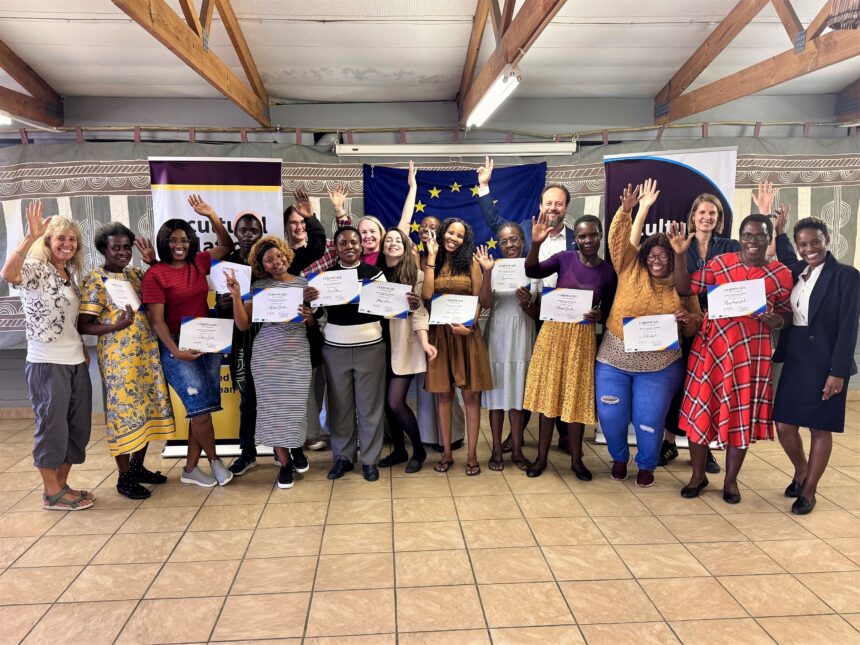Creative Namibian craft entrepreneurs from the Khomas and Zambezi regions have taken exciting steps to grow their businesses and sharpen their skills through a European Union (EU) funded workshop under the EU-Namibia Craft Project.
The initiative is supported by the Cultural Relations Platform.
The training, which took place between April and May, focused on practical topics like product development, pricing, packaging and storytelling.
Held at the Penduka Training Centre in Windhoek, the workshop gave artisans hands-on experience in turning their ideas into market-ready products, especially in jewellery, beadwork and corporate gifts.
Prior to the workshop, participants displayed and sold their handmade goods at the vibrant /Ae //Gams Arts and Cultural Festival in April.
With backing from the City of Windhoek and the EU Delegation to Namibia, the artisans set up stalls, connected with visitors and exchanged skills through mini-craft sessions.
Speaking at the closing session of the training, Ian Dupont, deputy head of mission of the EU Delegation said “crafts connect heritage with innovation. It is about more than what we make with our hands. It’s about telling stories, preserving identities and creating livelihoods. This workshop has helped build those foundations. We are investing N$1 million to support local crafters in the Khomas and Zambezi regions. The workshop helps artisans build confidence, refine their products and open new markets for their work”.
Senior lead consultant for the workshop Annie Symonds said “the training is not just about what artisans can make. It is about how they think about their craft, how they price and package them, and most importantly, how they share their unique stories. This is about building sustainable businesses, based on culture and creativity”.
One participant, Jason Hangara, shared his experience.
“This is the first time I’ve received real support to turn my ideas into products that can sell in shops. I’ve learned so much already. Thank you for the experience of a lifetime,” he said.
The workshop was facilitated by Anabel Loubser, Gabi Woker and assistant Klara Loubser.
Key partners include the City of Windhoek, Namibia Arts Association, Penduka Village and Emergo Communications.
The next round of training is scheduled to head to the Zambezi region in June to focus on business development, and a “training of trainers” workshop for crafts such as pottery, basket-weaving, wood- carving and textiles.
Plans are in place to collaborate with academic institutions and local craft centres to ensure long-term support and knowledge-sharing.
This project is part of the EU-funded Cultural Relations Platform, launched in 2020.
Its aim is to build cultural bridges and support creative industries around the world.
In Namibia, the focus is on giving artisans the tools they need to grow, innovate and share their heritage with wider audiences.


